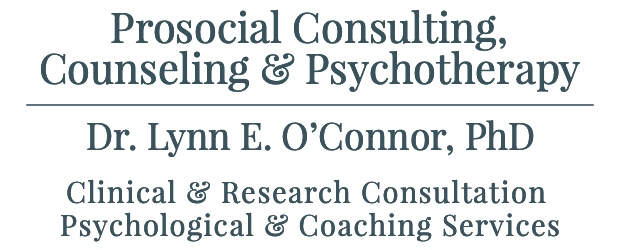How to Find, Select, and Hire a Psychotherapist
The press is almost as full of attacks on psychology, psychologists, and psychotherapists as it is on medications. Both are right to some extent and both are wrong. Some of the more virulent assaults (on each) are just a part of a turf dispute, or guild-to-guild warfare between disciplines. These may be most confusing because you may not know the difference between a psychologist, a marriage, family therapist and child counselor, a licensed social worker, or a psychiatrist. In many instances there isn’t any difference.
Different Degrees, Different Licenses: This May Not Be Important
For those who want to know the differences between therapists in terms of their disciplines, here it is: Psychologists have received a doctoral degree (either a doctor of psychology —–a PsyD– or a doctor of philosophy –a PhD—with broad training in psychology and receive a Psychologist license. Marriage and family therapists have received a masters’ degree (MA) in marriage, family and child counseling, with less academic training in psychology per se but equal training in terms of clinical practice, and receive the MFT license. Social workers receive either an MA or PhD degree in social work, and receive a LSW license. Training for social workers may include more emphasis on community-based issues, and agency related topics. But again, their training as clinicians is usually the same as the Licensed Psychologists, and MFTs. Psychiatrists receive an MD after extensive medical training, and then specialize in psychiatric internship and residence. In most states, only psychiatrists and other physicians, including family doctors, internists and others are permitted to prescribe psychiatric medications. This is changing slowly, as states are beginning to change the laws to allow psychologists (licensed psychologists) to receive additional training in psychopharmacology, and then to prescribe psychiatric meditations. In terms of clinical training, what the MD receives is again, similar to that taught to psychologists and MFTs. Despite these presumable “differences” there are equally good therapists within each discipline, and likewise, there are equally bad therapists as well. The degree and license a therapist holds is irrelevant in terms of what kind of help they offer people, and how good they are at performing this hard to define professional service.
Selecting a Therapist (and Paying for Silence)
If you are feeling down, or excessively anxious, if you find yourself constantly worrying, and you want to talk to someone (who, essentially, you pay for silence), or if you are depressed to the point that you think about killing yourself, or you wish something would happen that by accident would kill you, you really need to seek help from a professional psychotherapist. It doesn’t matter if the therapist is a psychologist, an MFT (licensed marriage, family and child counselor), a social worker or a psychiatrist. And across the board, you are paying for silence as well as whatever other knowledge and skills the therapist offers. A licensed therapist (of any brand, belonging to any guild) by law, can’t repeat what you say to anyone else unless you tell them you are planning to kill someone, or to kill yourself, or you are going into a legal battle and you’re planning to use your need for psychotherapyand/or medication as part of the evidence of having been harmed –otherwise, you are literally paying for silence, meaning you can say anything about yourself or anyone else safely. But how are you supposed to figure out who to talk to? If you Google “psychotherapist” in any major city, you get literally thousands of names, it’s overwhelming. So what should you look for in selecting a psychotherapist?

You’re probably more sophisticated than you think
For starters, ask your friends, colleagues you trust, or family members if they have seen a therapist they like or liked when they were “in therapy.” When anyone in your circle speaks well of her therapist, ask her to ask her therapist for a list of names of (other) psychotherapists who she thinks do good work. I advise against seeing someone your best friend is seeing. While some therapists are willing to do that (after all they want the business), many of us avoid that situation. A therapist has to work for you, she is paid to work for you. You are not paying your therapist to work for anyone else, and certainly not anyone else in your social circle. If you want to see a therapist with a member of your family, get names of family counselors or therapists and begin the therapy as a group. Then the therapist’s loyalty is to all of you, as a group, right from the beginning.
Returning to how to find a therapist, for you as an individual –once you have a list gathered, derived perhaps from suggestions of current therapists of friends or family members, Google every one of them. Most –or at least many—therapists today have some kind of web presence. Some may have a simple web page, others may be a part of a group that advertises therapists. For most you will be able to get some sense of the “person” that is the psychotherapist. Relax as you read through whatever the therapists are putting out about themselves. Chances are, at least a few of them are going to seem –perhaps mysteriously– attractive to you. Let your mind work –in some ways outside of conscious awareness—and trust yourself. One exception: If you know you are generally attracted to people who end up being mean, you may find that pattern repeating itself (so you may initially be attracted to a therapist who gives out some indication of meanness). So know to tread carefully, and deliberately avoid some of the characteristics that tend to draw you into bad relationships.
Then make appointments with two or three or even four therapists whose online presence appealed to you. Make phone contact with each, and let them know you would like to meet, you are looking for a psychotherapist. Don’t be afraid to tell them you are interviewing a few people. If you find yourself unable to let one of them know about your plan, that’s a warning sign that you feel sorry for the psychotherapist and you are afraid to hurt her feelings. Cross her off your list. A therapist who seems weak, vulnerable or even pathetic from the start of the relationship is unlikely to be helpful –you’ll spend all your time taking care of her. Many therapists are willing to have an initial meeting without charge, although some will charge full fee. You can ask about that on the phone. As a clinician, I prefer not to charge for an initial meeting –that way the client is not making an unwanted investment, and I have the opportunity to decide if I think I can help this person. If not, I offer referrals. It may be almost cliché to say this, but if I don’t click with someone, I know they’ll be better off seeing someone else.

Pay close attention to how you feel at the end of the first initial visit. That may be the most important determining factor in selecting a therapist. If you leave feeling unsettled, uneasy, and even more uncomfortable than you felt before the meeting, don’t go back to that therapist. If you leave feeling lighter, even dare I say happier than you felt when you began, that may be a really good therapist for you. The therapy relationship is a real relationship, in the “here and now.” Multiple studies have demonstrated that what is called the “therapeutic alliance” is the best predictor of positive outcome. If you feel understood, if you feel that “click” that happens when you meet someone you know you’ll like, you’ve probably found the “right” therapist for you.
The So-Called Empirically Supported Treatments A few words about the current emphasis on “empirically supported treatments.” You may be reading –in the assaults on the field of clinical psychology for example—that only therapists who advertise themselves as connected to “empirically supported treatments” work in a scientifically valid way, and that they alone are good therapists. This is not true. I like to think that most of us who are professional psychotherapists have learned some of these techniques, demonstrated to be effective for certain disorders. I hope we have learned them and know how to use them skillfully when appropriate. But I have never met a client who is coming to see me for treatment for one disorder. This may exist in laboratory studies, but it doesn’t in the real world we live in. If someone is suffering from an anxiety disorder, for example, obsessive-compulsive disorder (OCD), of course they want treatment for that problem. But they want and need a whole lot more. They want help with the ramifications of living with OCD that’s been with them for years, untreated. They want help dealing with close relationships. They want scientific knowledge about their disorder and anything connected, they want their helping professional to know the latest research about their particular problems and to always share it with them. They want to work collaboratively. They want to know about the “empirically supported techniques,” and they may also want or need medication, meaning they want a referral to a good psychiatrist or psychopharmacologist, or even a good internist (and in fact, today, family practitioners and internists do the most prescribing of psychiatric medications).
Beyond all these obvious things new clients hope for, they want me to be a person who works with them as a whole person, not as a specific disorder. A person is not defined by a disorder, and good treatment in the real world is never limited to an empirically supported method, that was studied in a laboratory using manualized protocols. That may be a part of what someone does in therapy but it is only a part and often, in successful treatments with good outcomes, it is a very small part. In this way psychotherapy differs from medicine. You ordinarily go to your physician because of a single problem; no one comes to see us, professional psychologists and other types of clinicians, for one disorder alone.

How Do You Know?
We rarely know if our dentist is really a “good dentist.” We only know how she makes us feel when she goes about doing unpleasant things with our teeth. We have a difficult time knowing if our car mechanic is a “good mechanic” –we only know how well he seems to do in diagnosing and fixing problems our cars are having. Likewise, we don’t really know if our therapist is a “good therapist.” The clearest indication is how you feel leaving a therapy session. If you feel stronger, more competent and ready to tackle your daily life problems, the therapist is a good therapist, at least for you. If you feel weaker, more full of pathology, or hopeless about your condition, chances are your therapist is not a good therapist for you. It’s fine to give a therapist a few more tries, but if you continue to leave your sessions feeling worse than when you arrived, start looking for a new therapist. Remember that you are hiring the therapist to work for you. If it works, hold on to her. If she’s making your feel worse, get rid of her without delay. There are many wonderful psychotherapists, and good psychotherapy can be remarkably effective.
An Addendum
One reader pointed out the absence of “counselors” in the list of practitioners. Let me clarify: There are MA level counselors and PhD counselors. They are licenced, and definitely tend to be excellent, and genreally focus on a wellness (rather than disease) model. Today many psychologists also have a wellness model in their work. Nevertheless, licensed counselors should have been included in the list of psychotherapists above. See comments to read more about this.
A second note: I have used the female pronoun througout –it is awkward to say she/he or he/she in writing, and not everything can be made plural, which easily includes both “he” and “she.” I used the female pronoun because it’s easier, today a majority of psychotherapists are women, and traditionally treatment providers were assumed to be a man. That said, whenever i use the female pronoun, assume it may also apply to men (who can be excellent psychotherapists).
